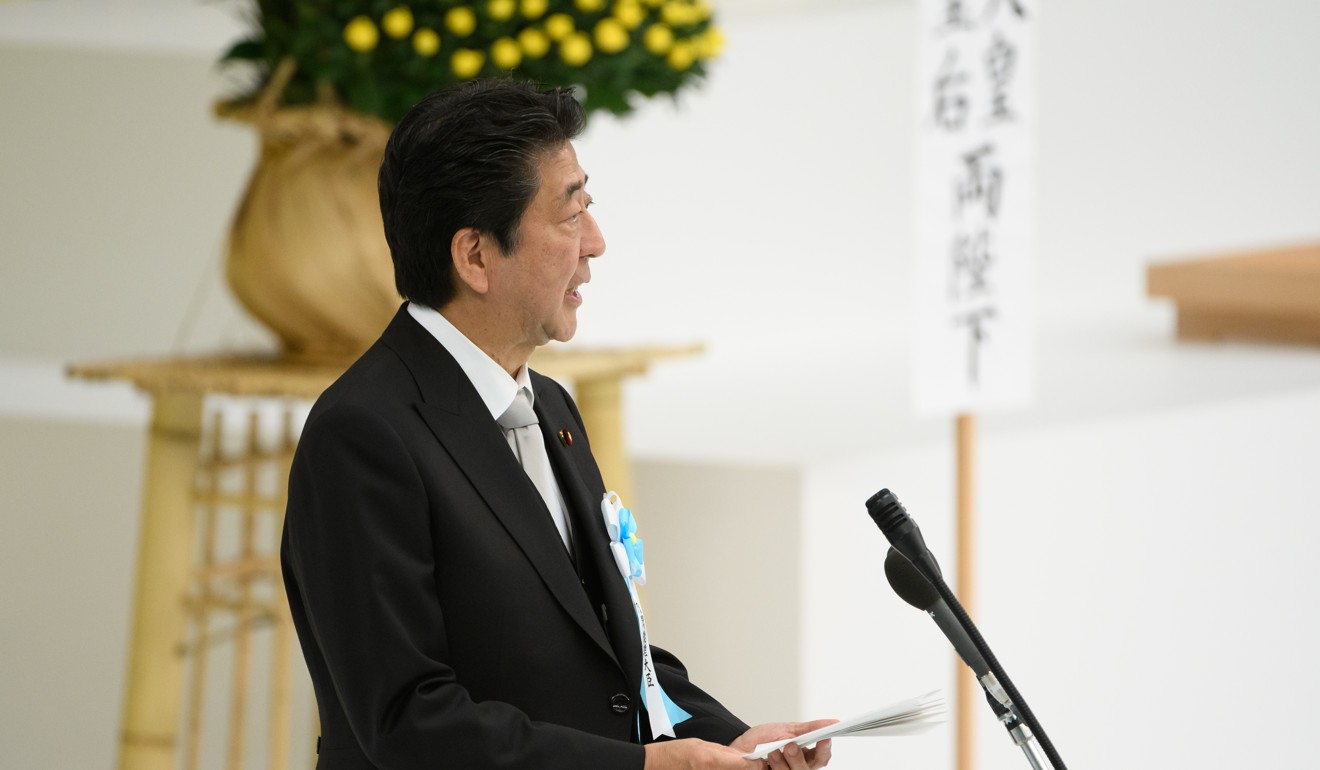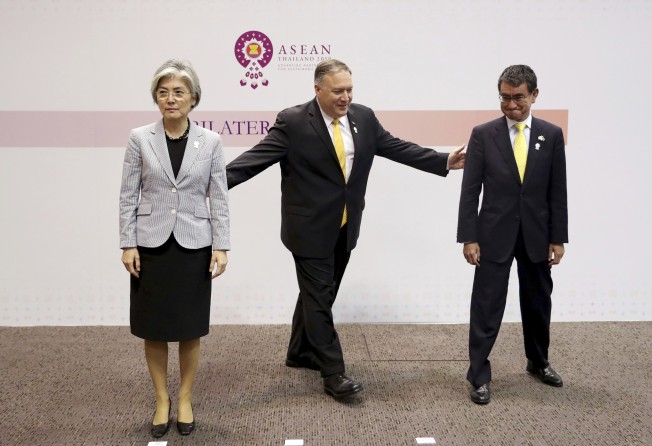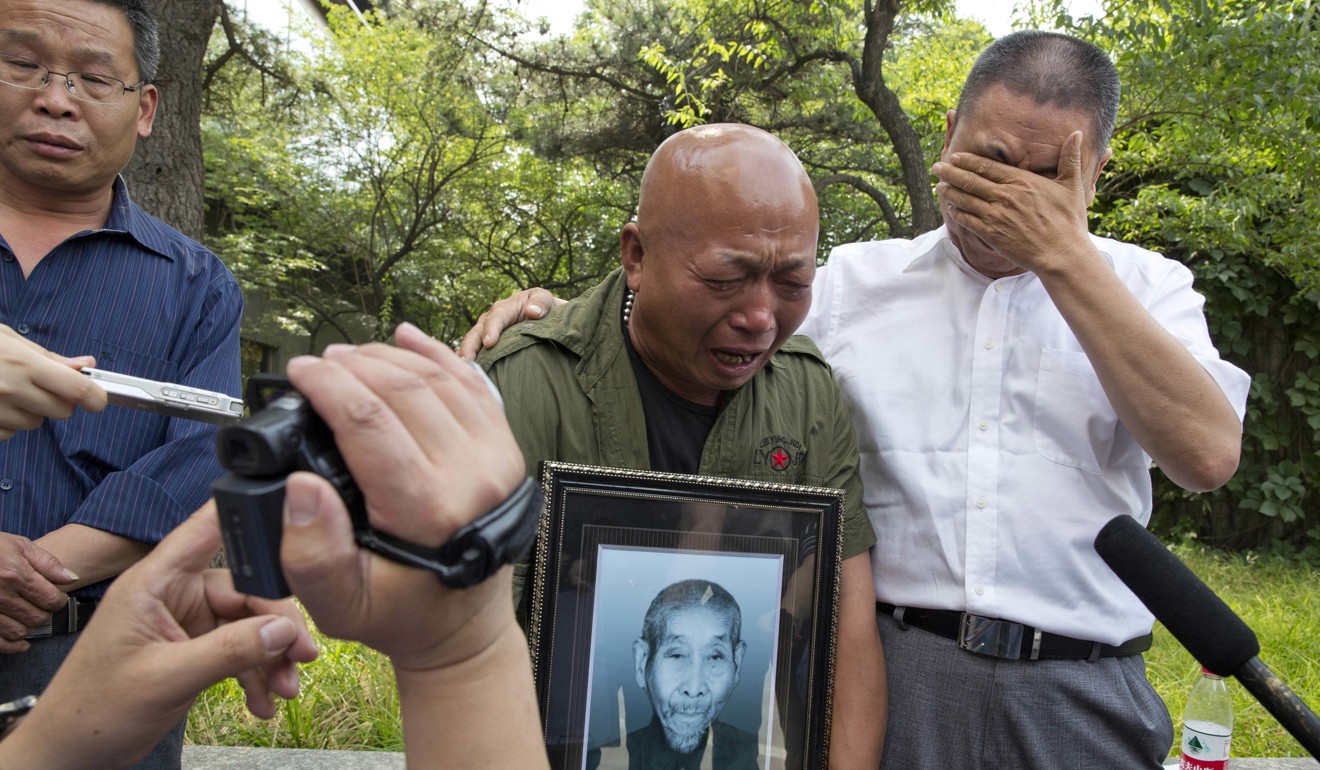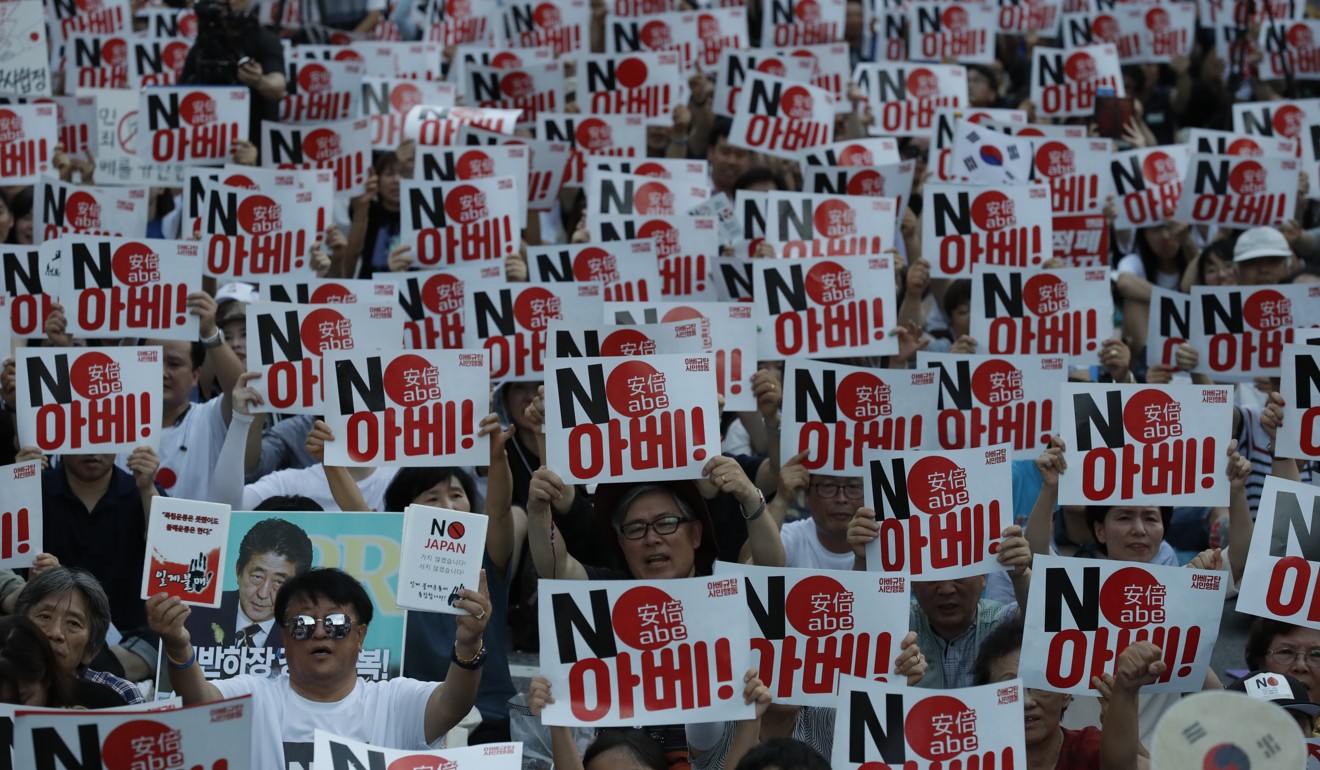
Why a Japan-South Korea trade war would not be a case of ‘both sides are at fault’ – Tokyo must compensate its wartime victims
- Japan’s claims that it is restricting the export of hi-tech materials to South Korea on ‘national security’ grounds are clearly absurd: Tokyo is trying to avoid paying compensation to victims of wartime atrocities for which it is still liable

Japan has recently taken steps to regulate the export of hi-tech materials to South Korea. It has justified the moves under the pretext of “national security”, presumably to exploit this exception under World Trade Organisation rules.
However, the moves are widely seen as retaliation for the Korean Supreme Court rulings ordering Japanese companies to compensate victims of forced labour during World War II. Japanese Industry Minister Hiroshige Seko admitted as much when he said the steps were a consequence of Korea failing to resolve the rulings.
In short, Japan has basically admitted that it is carrying out an economic sanction against an ally, under a false pretext designed to skirt WTO rules, because it doesn’t want its companies held liable for wartime crimes. How does the Japanese government justify this?
Tokyo’s argument goes like this: the 1965 treaty between Japan and Korea has “settled completely and finally” all colonial-era claims. In return, Japan provided Korea with US$800 million in grants and loans. Individual claims, such as compensation for victims of forced labour, should therefore be handled by the Korean government, which took the money.
When Japanese Prime Minister Shinzo Abe exhorted Koreans to “keep the promises between nations”, this was the viewpoint he had in mind.

The Korean court, on the other hand, reasoned that the bilateral treaty had only settled the claims between two governments but not those between individuals and companies. At times, the Japanese government echoed this position.
In 1991, Yanai Shunji, then-director general of the Japanese Foreign Ministry's Treaties Bureau, testified at the Japanese Diet that an individual’s right to file a claim “was not terminated” under the treaty. Lately, Japanese Foreign Minister Taro Kono acknowledged that the victims of forced labour had the right to seek damages, before switching positions.
International organisations have supported this view. The UN Commission on Human Rights has explicitly rejected Japan’s view that individual claims were settled by bilateral treaties. The International Labour Organisation urged Japan to respond to claims made by victims of forced labour.
It is in this context that the Korean Supreme Court heard the cases of forced labour victims and, ultimately, ruled in their favour. A similar case in China saw Mitsubishi Materials settle the claims of 3,765 Chinese victims without any intervention from the Japanese government.

In contrast, the Japanese government discouraged Japanese companies from honouring the Korean court’s rulings, effectively daring Seoul to seize their assets in Korea and warning of consequences if it did.
When the Korean court duly seized some assets belonging to Nippon Steel, Japan retaliated by regulating exports of materials crucial to semiconductor production in Korea.
Given that Korea depends on semiconductors for over 20 per cent of its exports, the Abe administration may have expected Korea to back down. Instead, the arrogant power move has angered the Korean public, and a clear majority favour a boycott of Japanese products. An all-out trade war looms.
It’s time for Japan to stop this madness. Aside from the obvious economic and geopolitical risks, Tokyo must consider its moral responsibility towards the victims of wartime mobilisation.

Between 1939 and 1945, Japan conscripted over 670,000 Koreans as forced labourers, out of which around 60,000 died – an astonishingly high ratio attesting to their grim working conditions. Most labourers had their wages withheld, weren’t free to leave their jobs, suffered violence at the hands of supervisors and lived in substandard conditions.
Germany established the German Forced Labour Compensation Program, paying out US$1.25 billion to 119,000 victims between 2000 and 2009. Why can’t Japan do the same for the 149,000 victims of forced labour identified by a Korean commission?
What we’re witnessing is a rare, perplexing case of a nation that committed war crimes brandishing sanctions at the victim, as if it held the moral high ground. The international community must not regard the situation with false moral equivalence (“both Japan and Korea must calm down …”) but recognise that one party is clearly in the wrong here.
Jung-kyu Kim has co-authored The Great Equal Society: Confucianism, China and the 21st Century with Dr Young-oak Kim of Hanshin University.